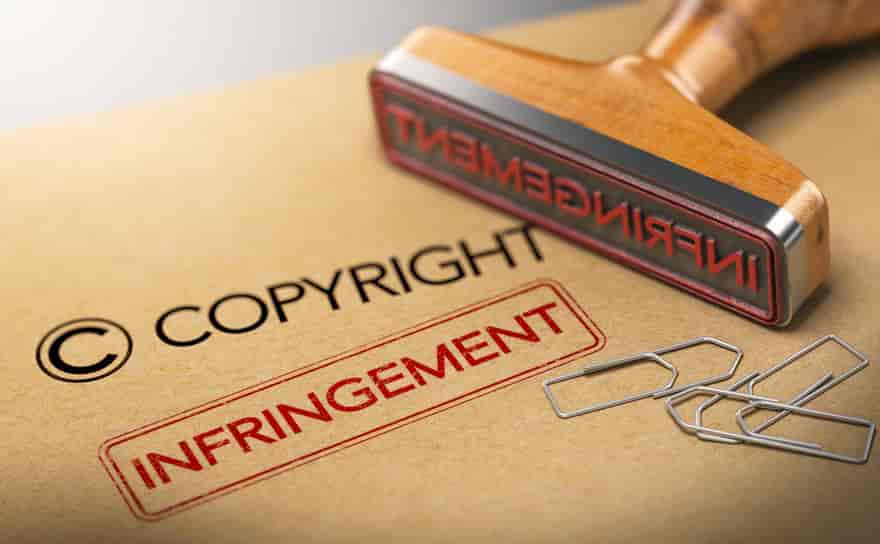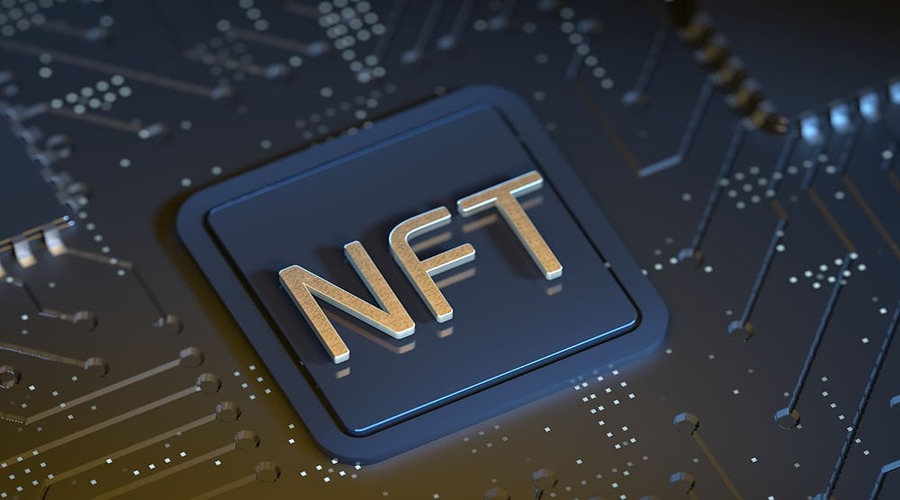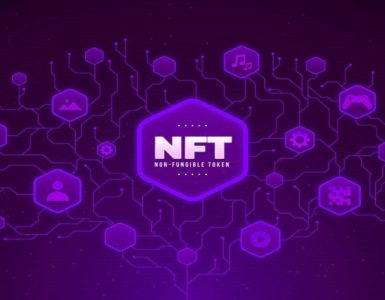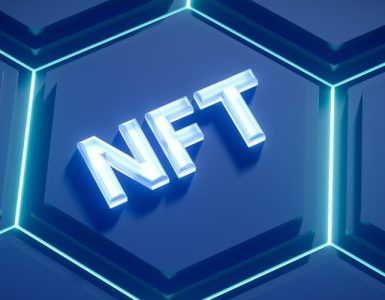In recent years, Non-Fungible Tokens (NFTs) have gained significant popularity across various industries, revolutionizing the way digital assets are bought, sold, and owned. With this rise, concerns about copyright infringement have emerged, raising questions about the legal implications and challenges surrounding the intersection of NFTs and intellectual property rights. This article explores the potential for copyright infringement in the NFT space and discusses the measures being taken to address these issues.
Introduction
As the digital landscape continues to evolve, NFTs have emerged as a unique form of digital ownership. NFTs allow individuals to authenticate and claim ownership over a specific digital asset, such as artwork, music, videos, or even virtual real estate. However, the decentralized nature of NFTs and the ease of reproducing digital content have led to concerns regarding copyright infringement.
What are NFTs?
Before delving into the complexities of copyright infringement, it is important to understand what NFTs are. NFTs are blockchain-based tokens that represent ownership or proof of authenticity of a specific digital asset. Unlike cryptocurrencies like Bitcoin or Ethereum, which are interchangeable and hold the same value, NFTs are unique and cannot be exchanged on a one-to-one basis.
The Rise of NFTs
NFTs have gained immense popularity across various industries, transforming the way creators and consumers interact with digital assets.
NFTs in the Art World
Artists and creators have embraced NFTs as a means to authenticate and sell their digital artwork. NFTs enable artists to retain ownership and receive royalties whenever their artwork is sold or traded.
NFTs in the Music Industry
Musicians and bands have also begun exploring the potential of NFTs. NFTs provide artists with a new revenue stream by allowing them to sell unique digital albums, concert tickets, or even exclusive experiences directly to their fans.
NFTs in Gaming
The gaming industry has witnessed a significant impact from NFTs, allowing gamers to truly own and trade in-game assets. NFTs have introduced a new level of rarity and scarcity to the gaming world, creating unique opportunities for players to monetize their skills and investments.
NFTs in Collectibles and Memorabilia
Beyond the realms of art, music, and gaming, NFTs have also found their way into the world of collectibles and memorabilia. From virtual sports cards to rare virtual items, NFTs provide a new way for collectors to own and trade unique digital assets.
NFTs in the Film and Entertainment Industry
The film and entertainment industry has started exploring the potential of NFTs. From selling exclusive movie merchandise to offering limited-edition digital experiences, NFTs offer new avenues for fan engagement and revenue generation.
NFTs in the Fashion Industry
NFTs are making their way into the fashion industry, enabling designers to create and sell virtual fashion items or exclusive digital experiences. This fusion of fashion and NFTs opens up new possibilities for creativity, self-expression, and ownership in the digital realm.
NFTs in the Real Estate Market
The real estate market is also exploring the potential of NFTs. Tokenizing properties as NFTs allows for fractional ownership, streamlined property transfers, and increased liquidity in the market. However, this introduces new challenges in terms of legal frameworks and property rights.
Copyright and NFTs
To understand the potential for copyright infringement in the NFT space, it is crucial to have a grasp of copyright laws and how they apply to digital assets.
- Understanding Copyright
Copyright is a legal framework that grants creators exclusive rights over their original works. It provides the creators with the right to reproduce, distribute, display, and perform their works, while also granting them the ability to license or transfer these rights to others.
- Copyright Infringement and NFTs
The decentralized and borderless nature of blockchain technology raises concerns about unauthorized reproduction and distribution of copyrighted material through NFTs. Unauthorized minting and selling of digital assets can potentially infringe upon the copyright holder’s rights.
- Fair Use and NFTs
The concept of fair use becomes particularly complex when it comes to NFTs. Determining whether the use of copyrighted material in an NFT falls under fair use requires a careful analysis of factors such as the purpose, nature, amount, and effect of the use.
- International Copyright Considerations
Copyright laws vary across countries, which adds an additional layer of complexity when dealing with NFTs on a global scale. Creators and buyers need to be aware of the copyright laws in different jurisdictions and ensure compliance to avoid legal issues.
- NFTs and Transformative Use
Transformative use is a key concept in copyright law, allowing for the use of copyrighted material in a new and transformative way. Understanding how transformative use applies to NFTs can help navigate the fine line between infringement and fair use when incorporating copyrighted elements into NFTs.
- Moral Rights and NFTs
Moral rights, which protect the integrity and attribution of creators’ works, are an important aspect of copyright law. Exploring how moral rights apply to NFTs can shed light on the responsibilities of NFT creators and platforms in upholding the integrity of the original works.
Challenges in Identifying Infringement

Identifying copyright infringement in the NFT space presents several challenges due to the unique characteristics of NFTs.
Complexities of NFT Ownership
Determining the original creator of an NFT can be challenging, as ownership can be transferred or obscured through multiple transactions. Tracking the provenance of an NFT and confirming its legitimacy can be difficult without proper documentation or metadata.
Tracing the Origins of NFTs
NFTs are often built upon existing digital content, making it challenging to trace the origins of a specific asset. Determining whether an NFT is created with proper authorization or infringes upon existing copyrights requires diligent investigation. Monitoring NFT Marketplaces
With the proliferation of NFT marketplaces, monitoring and identifying copyright infringement becomes a daunting task. The decentralized nature of blockchain technology and the sheer volume of transactions make it difficult to regulate and enforce copyright laws effectively.
Copyright Verification Technologies
Technological advancements, such as blockchain-based attribution systems and content recognition algorithms, are being developed to aid in the verification of copyright ownership. These technologies can assist in identifying unauthorized use of copyrighted material in NFTs.
Collaboration Between Platforms and Copyright Holders
Collaboration between NFT marketplaces, platforms, and copyright holders is crucial to addressing copyright infringement effectively. By working together, they can develop best practices, implement proactive monitoring systems, and establish processes to address infringements promptly.
Legal Implications
Copyright infringement through NFTs raises various legal implications that require careful consideration.
Intellectual Property Laws
Existing intellectual property laws need to adapt to the digital era to adequately address copyright infringement in the NFT space. Copyright holders must understand their rights and the available legal actions they can take to protect their creations.
Legal Actions and Remedies
Legal actions, such as cease-and-desist letters, takedown notices, or even litigation, may be pursued by copyright holders to enforce their rights and seek remedies for infringement. However, the global and decentralized nature of NFTs presents challenges for effective legal enforcement.
International Cooperation and Harmonization
Given the global nature of NFTs, international cooperation and harmonization of copyright laws are essential. Establishing unified standards and frameworks for addressing copyright infringement in NFTs can provide clarity and consistency across jurisdictions.
Dispute Resolution Mechanisms
Efficient and accessible dispute resolution mechanisms specific to NFT copyright disputes can help streamline the process and reduce the burden on creators and copyright holders. Establishing specialized panels or platforms for resolving NFT-related copyright disputes could be beneficial.
Protecting Copyright in the NFT Space
Efforts are being made to protect copyright in the NFT space, both by creators and industry stakeholders.
Watermarking and Embedding Information
Creators can protect their digital assets by watermarking or embedding information within the content itself. Watermarks serve as a visible deterrent to unauthorized use, while embedded metadata can help track ownership and establish authenticity.
Licensing and Copyright Transfer
By licensing their works or transferring copyrights through smart contracts, creators can maintain control over the usage and distribution of their digital assets. These mechanisms provide a legal framework for buyers and sellers, reducing the risk of copyright infringement.
Educating Artists and Creators
Education plays a crucial role in raising awareness about copyright laws and the potential risks associated with NFTs. Artists and creators should be informed about their rights and equipped with the necessary knowledge to protect their intellectual property in the digital landscape.
Third-Party Verification Services
Third-party verification services can play a crucial role in ensuring the legitimacy and copyright compliance of NFTs. These services can verify the authenticity of digital assets, track ownership history, and provide a layer of trust and transparency in the NFT marketplace.
NFT Marketplaces and Content Policies
NFT marketplaces have a responsibility to establish and enforce content policies that prioritize copyright protection. By implementing strict guidelines and conducting thorough content reviews, marketplaces can minimize the presence of infringing NFTs and promote a safe and legitimate environment for buyers and creators.
Conclusion
As NFTs continue to reshape the digital landscape, the potential for copyright infringement cannot be overlooked. While challenges exist in identifying and addressing infringement, efforts are being made to protect copyright in the NFT space. By understanding copyright laws, implementing technological solutions, and fostering education, creators and industry stakeholders can navigate the evolving world of NFTs while safeguarding intellectual property rights.





